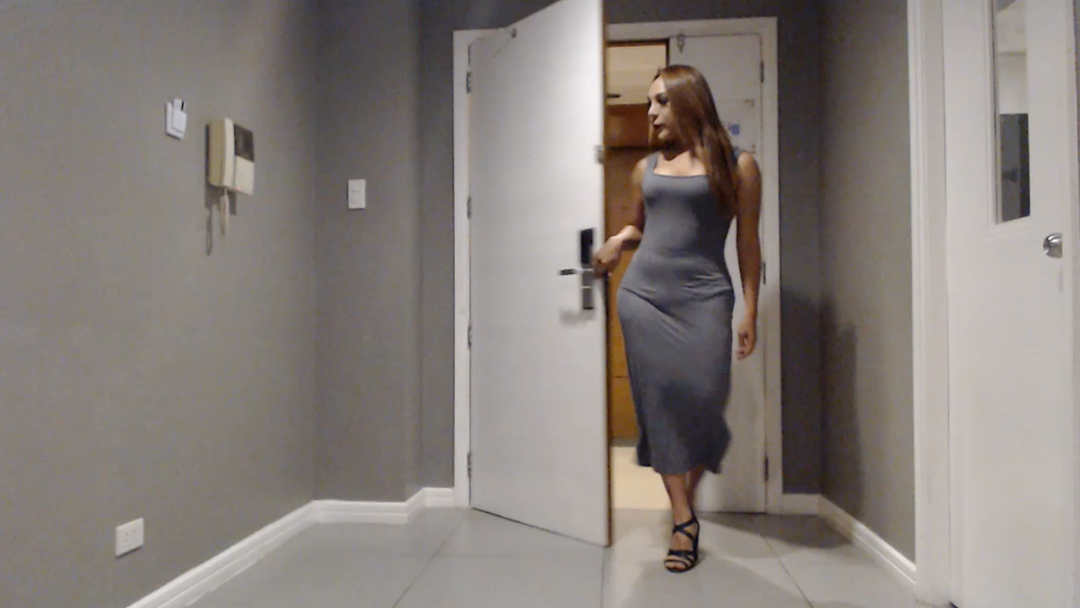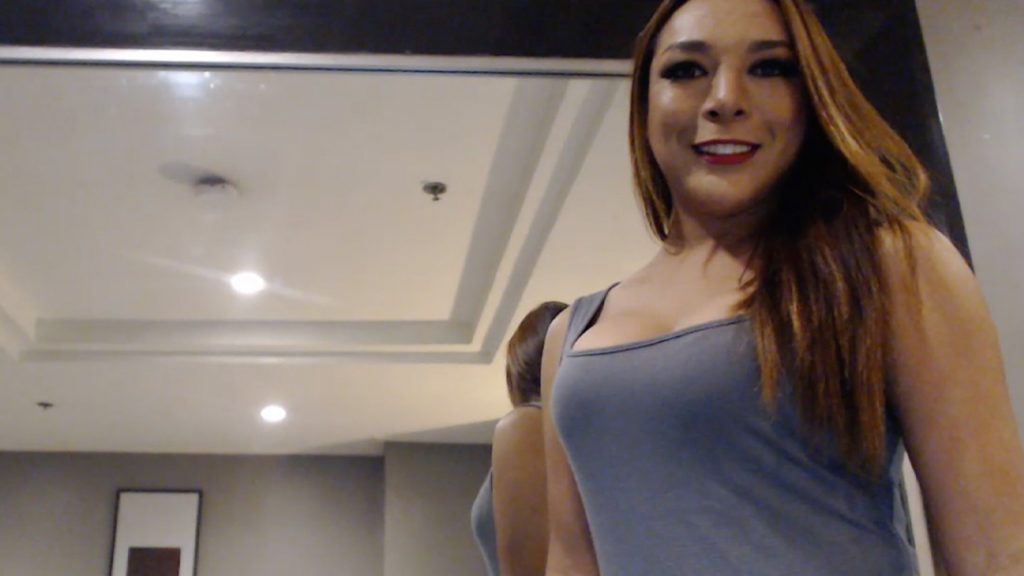This is part of #KaraniwangLGBTQIA, which Outrage Magazine officially launched on July 26, 2015 to offer vignettes of LGBT people/living, particularly in the Philippines, to give so-called “everyday people” – in this case, the common LGBTQIA people – that chance to share their stories.
As Outrage Magazine editor Michael David C. Tan says: “All our stories are valid – not just the stories of the ‘big shots’. And it’s high time we start telling all our stories.”
Maria Eda Catabas – 34 years old from Cebu City – always knew she was different. “I remember when I was still in kindergarten, I have this memory where the teacher asked me to fall in line with the boys. I cried because I wanted to fall in line with the girls. I always thought that I’m different from what society expects me to be,” she said.
Confusion, for Eda, wasn’t helped by the lack of a local term to describe the trans experience.
“Even until I was in my first years in college I would just identify with the term ‘gay’ because that’s what’s usually being used for people like me,” she said.
But then she started looking for love online, remembering signing up for many dating sites. “After many interactions with people from outside the Philippines, that’s when I first heard of the term ‘transgender woman’,” Eda recalled.
FAMILY AFFAIRS
The third among five kids,” It was quite challenging for me to be just open to my family, or to express who I was as a kid,” Eda said. “My father is actually a retired general from the Philippine National Police. During that time, he was still active in the service. I also have an older sister, the one next to me, who’s like me. So I saw that sister of mine being abused physically and verbally by my brother, and even sometimes by my father. So it was difficult for me to express myself and be out and, you know, just be who I was as a kid because I didn’t want to experience that. I saw that in front of me, you know; all of the difficulties she had to go through just because she was quite open compared to me as a kid.”
Eda added that “it was quite difficult and challenging because I had two personas at that time. When I was at school with friends, schoolmates and classmates, I was true to myself. I was very expressive, I had a very feminine expression in the way I talked, the way I acted, how I spoke. It was so different when I was at home. Because there, I tried my very best to deceive family members into believing that I was very masculine.”
It was also then when Eda fled from home “because I felt that I wasn’t comfortable at home at all.” She stayed with friends, and “I moved from one house to another because my mom was trying to track me.”
One time, though, she had a talk with her mom over the phone. “I told her, ‘No, I don’t want to go back home.’ That was how the conversation went at first. And then she said something that really got me. It was the time when she said that my father had a heart problem, or something like that. She said, ‘If something happened to your dad, I’m gonna blame you’, or something like that. Supposedly my dad was also very sad at that time. She passed the phone to my father. My dad and I had a conversation. In his voice, it was obvious that he was sad. He wasn’t angry; instead, he spoke to me in a very sincere manner, and with a very sad voice. After that, I went home the next day.”
In the end, “I’d say the issue was resolved because after that happened, I was already very expressive.”
HATE FROM THE COMMUNITY
Too bad for Eda, she also experienced discrimination from the community.
In school, for example, Eda remembered a high school classmate covering her eyes, while the other classmates hit her on the head. In college, she (and other trans people) were forced to abide by anti-trans policies – e.g. those assigned male at birth had to wear uniforms for men (there was a period when Eda said she and her friends had to wear wigs to hide their longer hair). And then one time, while with friends, she was physically assaulted (i.e. one of the guys Eda and her friends talked to “hit me on the head”.
For Eda: “Please open your mind; please open your heart. Again, it is not our fault. I will never blame you if you have a warped way of thinking. Especially since you’re part of a system, of a society that dictates you that you should be like this or that. Society imposed things on you that led to you becoming transphobic. Since time immemorial we have been facing discrimination, social oppression, abuse and violence. And I think this is the right time for you to take part. It’s our responsibility to do something good to make the world a safe space for everyone.”
STRENGTHEN THE LGBTQIA COMMUNITY
Eda works with an NGO now, and “I really like the work because it focuses on human rights advocacy that is very close to my heart.”
This is because Eda said she lived the many of the multiple identities that experience discrimination – e.g. aside from being trans, “I also did sex work because of the lack of employment opportunities for trans people in the Philippines.” On sex work, in particular, “sex workers are also marginalized in the Philippines because this is taboo, and no one really wants to talk about it. So sex workers in the Philippines have many unresolved issues.”
And so for Eda, “there are many fights related to human rights that I can very much relate with because of my life experiences.”
Eda things that having LGBTQIA – even trans-centric – organizations can help. In her dealings with people, as an example, “during interviews, especially when I ask them why they want to join an organization, it is common to hear from them: ‘I want belongingness.’ And that is important; that’s good for your well-being. To feel that you belong.”
Eda knows, however, that some of the issues plaguing the LGBTQIA community are self-inflicted.
“Even within organizations run by LGBTQIA people, I would say there’s politics. Abuse of power exists. Especially those organizations that are getting big grants. Because their organizations are more capacitated compared to smaller organizations. I have personally witnessed corruption and abuse of power. It is just sad that, at first, you would think that they’re helping you to face your struggles and challenges. But in the long run, you’d realize they’re also oppressors.”
LIFE LESSONS
“To younger trans people, I’m so sorry that we have to live a life like this. I hope that someday people will realize you are also human beings and you deserve to enjoy your rights,” Eda said.
But she added: “I hope you don’t become apathetic to the legacy of the trans rights advocates who came before us. Because there’s progress. Look at us now, we have the first transgender woman as a congressperson in the House of Representatives. There are also leaders in local government units and barangays who are trans. Let’s just make sure that momentum isn’t stopped.”
Eda knows it can be hard, but “I know it can be challenging, and fighting can be tiring. I know that very well because as an advocate, I also get tired. But let’s hold on to that progress and let’s just be optimistic that someday it will be a better place for all.”
And to families that continue not to accept LGBTQIA members, “I really hope that you’ll open your minds and hearts. I’m not blaming you. I’m not saying it’s your fault you’re ignorant regarding trans issues. Because we were raised this way. Society taught us to be transphobic. But your kids are also human beings. If you put yourself in the position, in the situation of your kids, you will realize that you deserve better. You deserve better than be someone who easily experiences abuse and violence. So please have an open mind and heart, and understand that just like you, they just want to be happy.”


































































